The Vanishing of Ethan Carter: a horror game after your mind
How unsettling can a non-combat first-person detective game be?
There are plenty of great horror stories in the world and there is no shortage of great detective fiction out there either, but for some the two go best hand in hand. For his studio's first release, The Vanishing of Ethan Carter, former People Can Fly creative director Adrian Chmielarz is betting that they mesh particularly well in a video game, and that this combination captures the imagination more effectively than mere jump scares.
"In most horror games when there's evil, the evil is after your flesh," he tells me. "In our game it's after your mind."
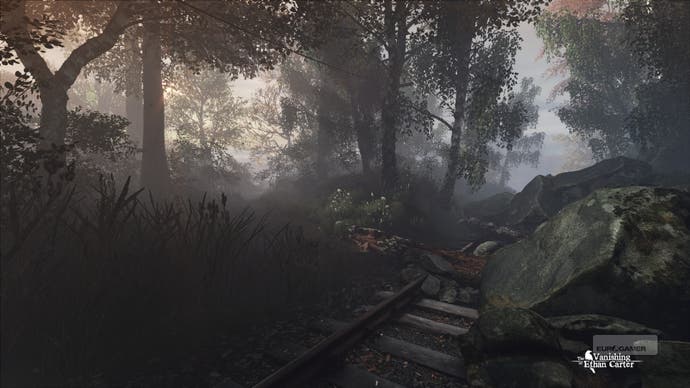
I get to see this in action in an early demo, which begins in a forest. The main character is Paul Prospero, a private investigator looking into the mysterious disappearance of Ethan Carter, a boy who wrote to him - a boy who sees things other people don't, and shouldn't. The police couldn't help, but Prospero will, because he can feel the darkness already. Like Carter, he's different. "Death is imprinted in the world," Chmielarz explains, and Prospero can sense it.
He makes his way to Ethan Carter's house, navigating an ominous grey forest agitated by the wind. In the background you can hear violin and cello music kicking up a melancholic din. As Prospero walks, traps spring around him and he begins to sense - something you control by pressing a button - that something important is happening nearby, although only he can perceive it. The sensation builds with each trap that springs until Prospero can finally step into the vision, emerging into a clearing filled with bones.
He walks on towards a rickety bridge straddling a river - a vista straight out of Twin Peaks, with autumnal trees spiking out of a mountainous horizon, a hazy setting sun lighting shimmery water below. Chmielarz has talked excitedly about the graphical capabilities of the game before, about the daunting photographic techniques at work, and here in motion the effect is splendid. There's a believability to the world, wear and tear - rust, moss, cracks. "Let's not exaggerate," Chmielarz catches me. "It's not mind-blowing visual reality, but it's still something I haven't seen before in games. I just lose myself walking around."
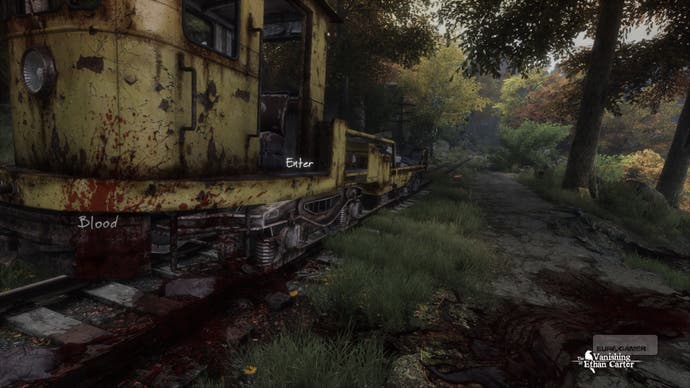
There's a brief bit of voiceover as Prospero crosses the bridge - this kind of expositoin will be used sparingly throughout - and then he comes upon a deserted old rail car, blood splattered up the front, and his detective skills spring into action. A press of a button tells him to inspect the stains and his thoughts manifest as words floating briefly before him. "Animal? Human?" he ponders. "Fresh. Few days?" There's a pause. "Accident? Murder?" And finally, "Blood."
Inspecting the crankshaft reveals there's no crank and he'll have to find it. Another game mechanic - this time to help find things. Copies of the question "Crank?" flood onto the screen, scattering further apart as you peer in the wrong direction, eventually merging together when you're facing the correct way. Then comes a vision of the bloodied crank on a shore.
He follows the rail tracks but discovers thick pools of blood smeared along the floor, as if something has been dragged. And then he sees it: a man's body, mutilated, mangled. There's no pang of noise to startle you, just a sinister realisation that something horrific has gone on and you have to piece together what. Then you watch it play out in a vision. Prospero mutters: "Contrary to popular belief, the dead have a lot to say. To me, at least, they do."
This introduces another key concept: seeing the last 30 seconds of a corpse's life. But to do so you must align the world to how it was when they died, which means searching for more clues and rearranging what you find. When this is done, you can step into the corpse's vision, seeing each chilling step of the murder play out before you. When the order of steps is correct the death is solved, providing a stepping stone to the next part of the story, often teasing the threads of a larger, more mysterious story in the process.
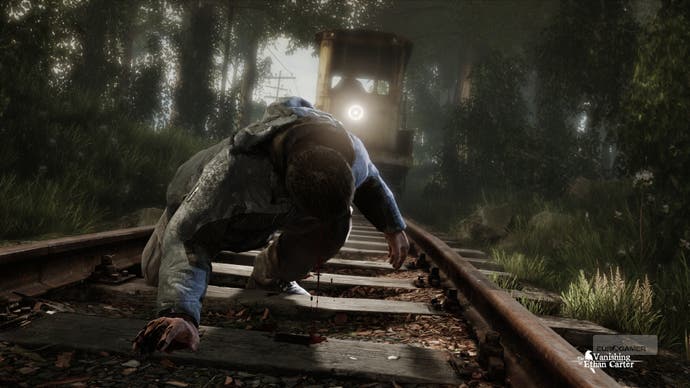
Will these Prospero visions happen a lot? "We won't overdo it," says Chmielarz, which is reassuring. Nor will the developer allow the sight of so many corpses to erode the sense of the macabre, which is also an initial concern. After all, if you can solve a murder in 20 minutes in this part of the game, how many will the full thing need to have? "There will be... surprises," Chmielarz teases. "I hope that every time that players think they have this figured out, they haven't."
I also wonder how the game will create a sense of threat, there being no combat and no way you can die. "There will be sections that will, I hope, raise the pressure - the blood pressure in your veins," he says. "But again it's about certain realisations and you asking yourself some pretty dramatic questions."
Perhaps a bigger issue though is whether The Vanishing of Ethan Carter lives up to the standards Adrian Chmielarz has set for himself. He's well known for critiquing other high-profile games such as BioShock Infinite, and for pointing out the errors he perceives in the games industry's creative ways. Surely that puts a lot of pressure on The Vanishing of Ethan Carter?
"That's a little bit of a curse," he agrees, with a grin. "There is a cost attached. Maybe I'm perceived as this guy who is always criticising the games of others, and there's this thing now with the expectations for Ethan Carter. But I'm hoping that I help ignite the discussion because I don't think developers are talking enough.
"There's this saying in Poland that the higher the monkey climbs the tree, the more its arse is exposed, and that's sort of what's happening here, right? Yes we need to live up to the expectations, but then, what if we do?"
Whether The Vanishing of Ethan Carter is a remarkable game I'm not yet sure. Some of it looks a bit obvious and gamey. But then it's not finished and this is only the opening section. Crucially, however, I get a glimpse of a detective story that unsettles me, stays with me, and I'm intrigued to find out more. That's a kind of horror I can appreciate.
The Vanishing of Ethan Carter is, for the moment, a PC game. It'll be out in around four months time. Console releases may come after if it's a success on PC.
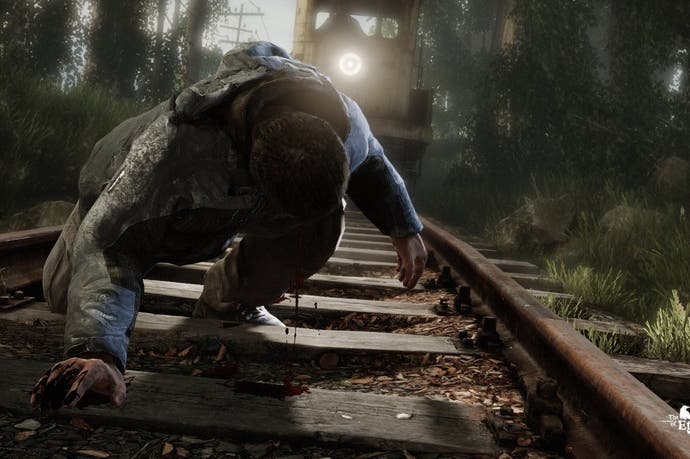

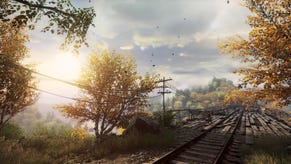
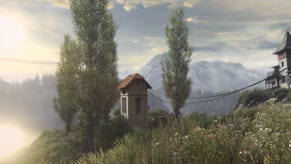


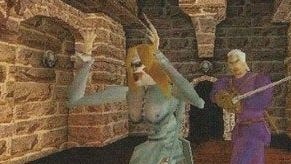
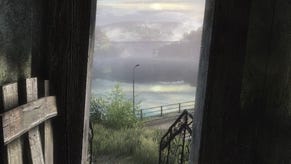





.png?width=291&height=164&fit=crop&quality=80&format=jpg&auto=webp)



